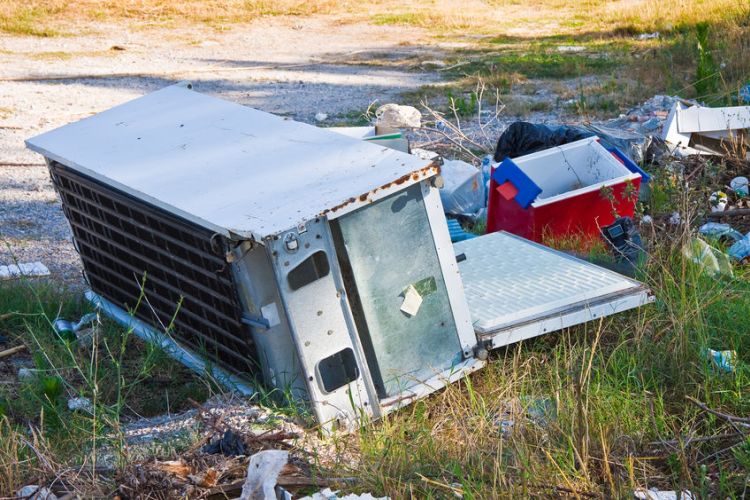
Awareness is being raised over the continued blight of fly-tipping in rural areas as the UK entered its third lockdown earlier this week.
With a new lockdown in place, the country is scrambling to establish what the latest restrictions will mean to people's daily lives.
The Countryside Alliance says it is monitoring waste disposal closely, as restrictions to recycling centres and tips can have an 'adverse effect' on rural areas.
The organisation says there was an 80% rise in fly-tipping in certain areas during the first lockdown, which has had an 'unacceptable' impact on the countryside.
Farmers’ fields, laybys and rural lanes became hot spots for DIY remnants, unwanted furniture and garden waste.
"Without a question, fly-tipping is a blight to the countryside and needs to be treated as a serious crime," a spokesperson for the Countryside Alliance said.
"Sadly, it is also one of the few crimes in which the victim pays. The victim, more often than not farmers, must pay to remove the waste, or risk being fined for storing the illegally dumped waste on their land.
"Although it is early days for this latest lockdown, it does appear from preliminary observation that many local authorities are reporting that their waste disposal facilities will remain open; albeit with restrictions in place."
In Warrington for example, the Borough Council has said that while tips will remain open, visits must only be ‘essential’.
This means that if waste cannot safely be stored at home, an individual can visit the tip to dispose of waste.
Alternatively, in Warwickshire, tips will remain open but the public are requested to book a time slot online prior to making the journey.
"We urge the public to check well in advance before planning to carry out any household activity that will likely generate abnormal levels of waste," the Countryside Alliance added.
"Where possible, please ensure you can store this waste safely at home. Should you require a tip, please do check to see what restrictions are in place."
